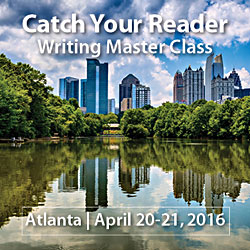Why negative messages gain traction
Did Stanley Kubrick fake the moon landings? Was President Obama holding a rocket launcher in a car with an ISIS leader? Does your favorite shampoo cause hair loss?

Fear appeals work (Rev Up Readership members only; join Rev Up Readership), according to 50 years of research and 100 studies reviewed by researchers Kim Witte and Mike Allen. But what makes bad news — even when it’s not real news — gain such traction?
It’s evolutionary, writes Matthew Hutson in a recent article in The Atlantic. The more likely a message is to help us survive a threat (or find a mate), the more likely we are to believe it, remember it and share it.
- Fear appeals are more believable. In one study, subjects ranked the sources of negative messages (leeches clinging to your feet, software frying your hard drive, meat turning bitter on the stove) as much as 287% more knowledgeable than messages about the same subjects but with neutral themes. (Pascal Boyer & Nora Parren, “Threat-Related Information Suggests Competence,” PLOS One, June 2015)
- Fear appeals are more memorable. In another study, subjects read an urban legend, rewrote it from memory, and passed it on to the next person in a sequence like the game of telephone. At the end of the chain, subjects remembered the legends that would help them survive (serial killers and spiders) or rise socially (cybersex) much better than the control information. (Joseph M. Stubbersfield, Jamshid J. Tehrani & Emma G. Flynn, “Serial Killers, Spiders and Cybersex,” British Journal of Psychology, May 2015)
- Fear appeals get shared. When researchers analyzed 220 urban legends, they found that the stories were much more likely to mention threats than benefits. That makes sense: Evolutionarily, believing in a fake hazard is less harmful than disregarding a real one. And subjects found statements about topics ranging from German shepherds to Lasik surgery more believable when they mentioned risks, like mauling or double vision. (Daniel M. T. Fessler, Anne C. Pisor & Carlos David Navarrete, “Negatively-Biased Credulity and the Cultural Evolution of Beliefs,” PLOS One, April 2014)
For decades, fear appeals have been more effective (Rev Up Readership members only; join Rev Up Readership) at getting people to do everything from duck and cover to avoid texting while driving.
Why not accentuate the negative in your next campaign?
Don’t be afraid of fear appeals.
Using fear appeals may at first seem counterintuitive. But if you want to Catch Your Readers, you need to think like a reader. Then you need to use the bait your reader likes, not the bait you like.
 Problem is, many of the techniques we’ve institutionalized in business communication writing are not the bait the reader likes.
Problem is, many of the techniques we’ve institutionalized in business communication writing are not the bait the reader likes.
At Catch Your Readers — a two-day Master Class on April 20-21 in Atlanta — we’ll debunk destructive writing myths. (You’re not still married to the inverted pyramid, are you?!) You’ll leave with scientific, proven-in-the-lab approaches for getting people to pay attention to, understand, remember and act on your messages.
Specifically, you’ll learn to how to:
- Think Like a Reader: Move people to act
- Go Beyond the Inverted Pyramid: Master a more effective structure
- Cut Through the Clutter: Make every piece you write measurably easier to read and understand
- Lift Your Ideas Off the Page Or Screen: Reach flippers and skimmers, increase readership
- Transform Your Story From “Meh” to Masterpiece: Bring your laptop and a story to work on, write and rewrite, get and give feedback, and leave with a totally rewritten piece.
If you’d like to move beyond the way we’ve always done it to learn what really works now … if you want to write messages that actually change behavior instead of simply publishing, posting and pushing send … if you’d like to become the go-to guy or gal for writing in your organization, this is the class for you.
Please join us to learn why Jennifer Uschold, senior manager of internal communications at Direct Energy, writes of this Master Class, “Fantastic! Within 90 minutes I was applying the ideas Ann presented.”
Save $100: Just 18 early bird tickets remain for this class. When they’re gone, they’re gone. If you’d like to secure the best price on this workshop, please register today.
Browse all upcoming Master Classes.
Would you like to hold an in-house Catch Your Readers workshop? Contact Ann directly.